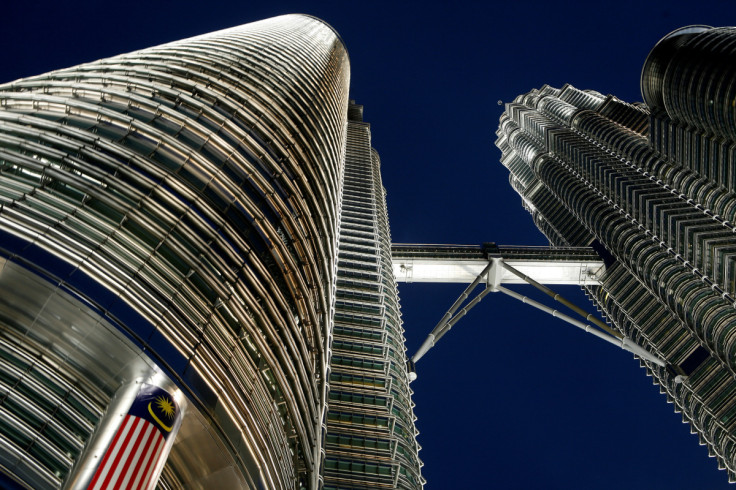Sustainable Transport: The Emerging Travel Segment Gaining Traction In Malaysia

KEY POINTS
- Sustainable transport can "enhance economic growth": UN
- From July 2022 to July 2023, Google searches related to sustainable transport in Malaysia increased by 160%
- Sustainable transport will increase Malaysia's attractiveness for a "discerning tourist:" Asia Mobiliti CEO Ramachandran Muniandy
- The segment may also help Malaysia achieve its energy transition goals: Muniandy
Malaysia, with its Petronas Twin Towers, Batu Caves and many other attractions, is one of Southeast Asia's go-to destination for tourists across the world. Now, an emerging segment in the country's tourism industry may propel travel toward sustainability -- a direction in which the world appears to be inevitably headed.
Sustainable transport is basically any type of travel that ensures the least damage to the environment, such as transportation that has low carbon emissions, car-sharing, the use of bicycles, or the transition to electric trains and vehicles. The United Nations said sustainable transportation "can enhance economic growth and improve accessibility" as it achieves "better integration of the economy while respecting the environment."
In Malaysia, studies about the feasibility of sustainable transport in the country have been on the rise in the past decade, especially as the country intends to reduce its greenhouse gas emissions by 45% in 2030 compared to 2005 levels.
Researchers also observed that new vehicle technologies were becoming commercially available in the country, and this could pave the way for faster adoption of sustainable transport among Malaysians and travelers to the country.
Malaysian transport minister Anthony Loke reaffirmed late in October the country's commitment to more energy-efficient transport options in line with Malaysia's cleaner energy goals.
While there is a growing number of general studies related to sustainable transport, the concept of sustainable transport in the travel industry has only been gaining attention in recent years. Still, there is apparent interest in the segment, as Malaysian companies begin working with big tech giants to promote sustainability for more environmentally-conscious travel experiences.
One such company is Shah Alam, Selangor-based Asia Mobiliti, which "builds connected data products and powers mobility solutions that move people and goods sustainably, seamlessly and intelligently."
Late in July, the mobility technology startup partnered with Google Cloud and Malaysia Airports Holdings Berhad to provide consumers with sustainable, digital-first travel experiences. The partnership came at a time when seven in 10 urban digital consumers in the country were already using digital travel services -- the said travel category was expected to contribute $8 billion to the Malaysian digital economy within the next two years.
From July 16, 2022, to July 15, 2023, Google search inquiries related to "sustainable transport" and "ecotourism" in Malaysia saw growth of more than 160% and over 700%, respectively, indicating increasing interest and awareness about the possibilities of sustainable transport in the country.
Ramachandran Muniandy, the CEO and co-founder of Asia Mobiliti, told International Business Times that sustainable transport can "absolutely" become a huge industry in Malaysia, considering the corporate sector's interest in "advancing ESG (environmental, social, and corporate governance) goals."
Also, investments that promote sustainable development goals are building up "the market environment for sustainable transport to flourish."
In terms of the travel industry, Muniandy said he believed sustainable transport "will significantly improve the attractiveness of Malaysia as a travel destination for the discerning tourist."

Data from a Booking.com report in 2021 showed that 72% of global travelers believe people need to start acting on saving the planet for the sake of future generations. Also, 61% of global tourists said the COVID-19 pandemic made them want to travel more sustainably in the future.
Muniandy said there was indeed "an increased consciousness and desire" among travelers for not just emission-free transport options, but also more efficient transport modes such as "demand-responsive transit and shared-rides services." Such options can promote efficient and sustainable ground transport, while also ensuring more reliable and economical transport for travelers.
Aside from Malaysia's travel sector embracing greener options for transport, sustainable transport services will also "be one of the core initiatives if we are to achieve our national energy goals," Muniandy pointed out.
Malaysia aims to reach 70% of renewables in its power mix by 2050, higher than the previous target of 40% by 2035.
As part of the country's efforts to spread more awareness about transitioning to sustainable transport, Malaysia recently hosted the United Nations Environment Program's Accelerating Sustainable Transport event, wherein policies to reduce CO2 emissions from urban passenger transport were discussed.
Malaysia still has to put a lot of work into its sustainability and renewable energy transition goals, but Muniandy believes a "cohesive digital and sustainable infrastructure" can help turn the country into a "regional or continental hub for sustainable mobility."
© Copyright IBTimes 2024. All rights reserved.












